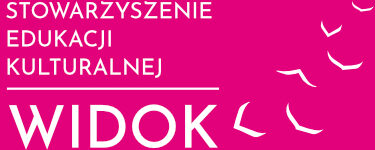I AM, BECAUSE YOU ARE – a mentoring support program for children
IDEA
“I am because you are” is a pilot mentoring project for children and young people from 5 localities in Podlaskie Voivodeship: Białowieża, Białystok, Szudziałowo, Suprasl and Sniadow. Its goal is to support the talents of young people living outside of large scientific and cultural centers. They usually have a difficult time accessing knowledge. The material status of the family or the threat of social exclusion can also be an obstacle to development. Any inequality and sense of isolation has been further exacerbated in recent months by the pandemic.
PARTICIPANTS
The selection of the 15 participants in the project will take place in cooperation with schools, NGOs and cultural institutions. Senior elementary and beginning high school students will be covered. The project involves working with residents and institutions in selected localities. It is intended to strengthen social sensitivity and raise awareness of the “costs of omission” of gifted children’s development, to counteract the “inevitable repetition of fate” of those who were not fortunate enough to grow up in ideal conditions.
ACTIONS
Young people qualified for the project will work under the guidance of 5 mentors for over a year. Their task will be to discover children’s talents and motivate them to develop them. They will point out paths and perspectives, help you to find your way in an environment that is not always friendly, to discover your own independent path. It also aims to build young people’s self-esteem and self-confidence, learning self-presentation and assertiveness.
Contact with a mentor will be a chance to compensate for shortcomings, develop potential, raise the cultural capital of young people, show that their fate matters. Mentoring can consist of, for example: allowing access to cultural and academic resources in and out of their place of residence. It will sometimes involve the transfer of skills necessary in the field. At other times with mediation in establishing contacts, showing edifying examples, teaching patience and perseverance in pursuit of a goal. Finally, it can simply be financial support for the purchase of materials necessary for the work, teaching aids, entrance tickets, paying for travel to classes.
Each mentor will cover 3 people. Working with them can be done individually, but also in teams. This will ensure that the youth will continue to have a foothold after the project ends. Ideally, a trusted self-help group will be formed.
STAGES
The project began in November 2021 and will end in February 2023. It was divided into stages.
– Training of mentors in 3 areas; Specifics of working in local communities with low social trust capital; Working with children experiencing difficult life situations. Building mutual trust. Techniques to stimulate creativity; Using networking tools and resources to create your image online.
– Recruitment of participants; The method of recruiting youth will depend on the environment, but based on common criteria. In addition to living in the project villages, it will be important to have interests on which to build a sense of worth, a voluntary willingness to cooperate, and recommendations from trusted people and institutions in the community. Recruitment will be done in consultation with schools, local government, local NGOs, activists and entertainers.
– Mentoring work with young people; It assumes regular, meetings and contacts (several times a month), during which an individual development plan will be implemented and ongoing assistance provided. The result will be the development of a mentoring model for working with talented youth at risk of exclusion in small towns. It is to be based on the concept of self-determination theory by Edward L. Deci and Richard M. Ryan, according to which there are three factors that drive self-determination: autonomy (a sense of exerting control), competence (a sense of ability to achieve) and relatedness (social affiliation).
– Integration meetings of young people and mentors; Two such meetings are planned in the project: the first combined with a workshop on communication and learning a conscious approach to the use of virtual media, the second at the end of the project (combined with a press conference) during which young people will take part in an artistic or scientific event chosen together.
– Preparation of a digital publication (toolbox); It will summarize the experience of the pilot project. It will include descriptions of the mentors’ working methods, a description of the paths of work with young people, project documentation of, for example, the progress of youth development, anonymous descriptions of difficult situations and recommended solutions. The publication will serve in future editions of the mentoring program. It will be made available on the Association’s website for other educators.
MENTORS:
The 5 mentors implementing activities with young people are well-established in local communities, with a lot of knowledge and competence, and enjoy authority. They will work with their charges according to a developed schedule. While developing their individual interests, they will also pass on their unique skills: literary, journalistic, artistic, historical.
Our mentors are:
Shared competencies: empathy, familiarity and embeddedness in the local environment, experience in working with youth, authority in one’s field.
PROJECT STAFF
– Magdalena Godlewska-Siwerska
– Ursula Dabrowska – journalist, chairman of the board of the View Association, in charge of promotion in the project.
– Katarzyna Łotowska – member of the WIDOK Association, president of the NGO Support Center, in the project responsible for training mentors.

